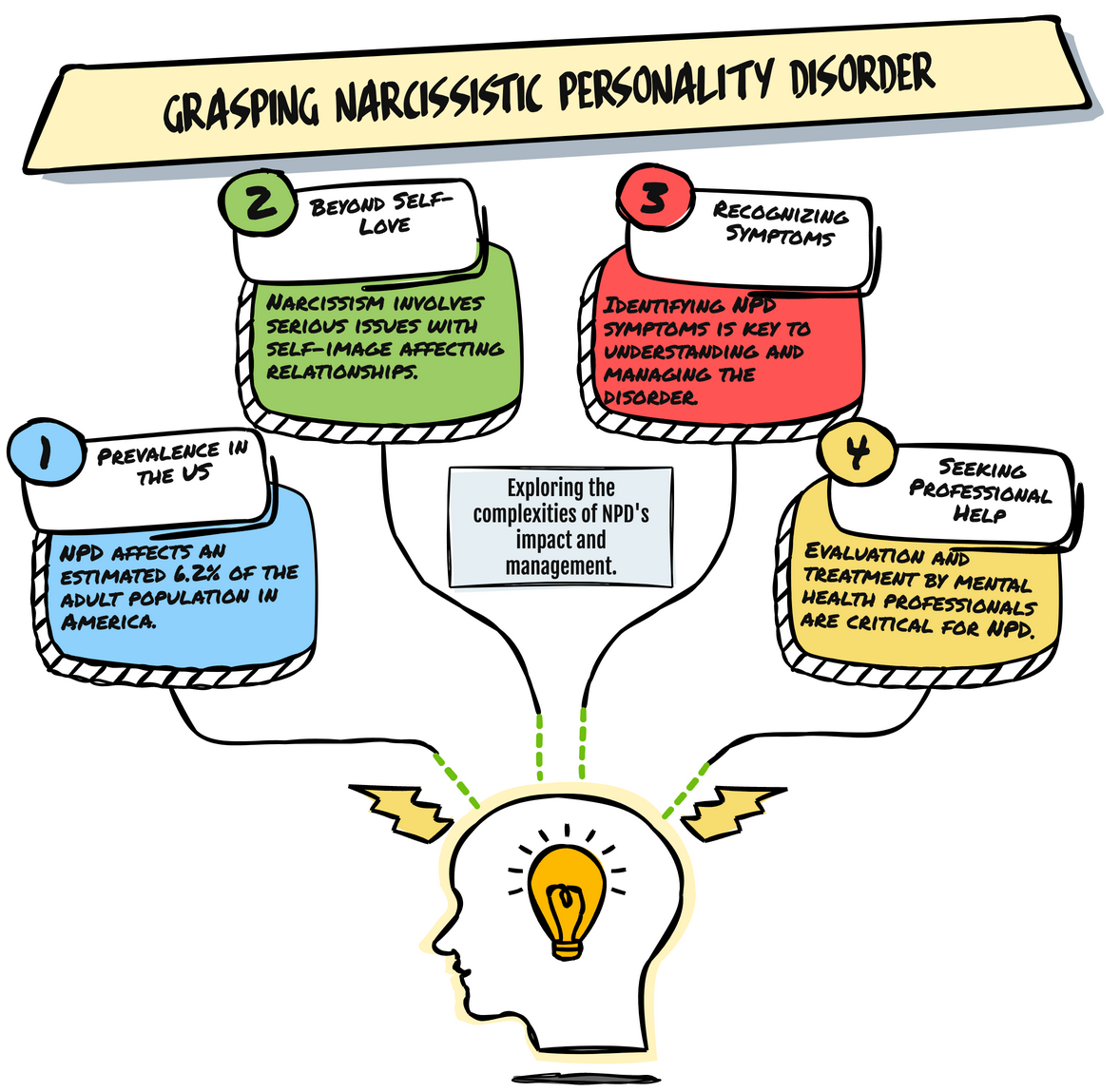In male relationships, recognizing narcissistic traits early is essential. Look for perfectionism, control issues, lying, and manipulation. Lack of empathy can lead to abuse. Identify signs and set boundaries firmly. Seek a supportive network. Watch for patterns like self-centeredness, grandiosity, and gaslighting. Understand power dynamics, red flags, and the need for healthy boundaries. Signs include entitlement, lack of empathy, and a constant need for admiration. Keep an eye out for dismissive attitudes and commitment issues. Male narcissists may exhibit grandiosity, control, lying, manipulation, and a lack of empathy. More insights await in understanding and dealing with these behaviors.
Key Takeaways
- Look for control issues and manipulation.
- Notice attention-seeking behaviors.
- Identify lack of empathy.
- Watch for dismissive attitudes.
- Recognize manipulative behaviors like gaslighting.
Narcissistic Traits in Male Partners
In male partners, narcissistic traits manifest through behaviors such as perfectionism, control issues, pathological lying, and manipulative behavior. These traits often result in a lack of empathy, leading to abusive behavior towards their partners. It's important to recognize these signs early on to protect oneself. Setting boundaries is necessary when dealing with a narcissistic male partner. Clearly communicating what's acceptable and what isn't can help prevent manipulative tactics from taking a toll on your well-being.
When faced with a narcissistic partner, having a strong support system is essential. Surround yourself with friends, family, or a therapist who can offer guidance and understanding. Remember, you aren't alone in this situation, and seeking help is a sign of strength, not weakness. By acknowledging these traits and taking steps to address them, you can navigate the complexities of a relationship with a narcissistic male partner more effectively.
Signs of Narcissism in Relationships

Exploring the signs of narcissism in relationships requires paying attention to narcissistic behavior patterns, understanding relationship power dynamics, and recognizing red flags that may indicate narcissistic tendencies.
By being aware of these key elements, we can better navigate and evaluate our relationships, ensuring that we maintain healthy boundaries and prioritize our emotional well-being.
Recognizing these signs early on can help prevent potential harm and promote a more balanced and fulfilling relationship dynamic.
Narcissistic Behavior Patterns
How can one identify narcissistic behavior patterns in male relationships?
Male narcissists often exhibit a lack of empathy, prioritizing their own needs over others. They may display a grandiose sense of self-importance, constantly seeking admiration from their partners.
Manipulative tendencies, like gaslighting and emotional manipulation, are common traits in their behavior patterns. Additionally, male narcissists tend to evade accountability, blaming others for their actions in relationships.
Recognizing these signs can help in setting boundaries and seeking support for a healthier dynamic. By understanding these narcissistic behavior patterns, individuals can empower themselves to navigate relationships with awareness and assertiveness.
Relationship Power Dynamics
Understanding relationship power dynamics in relationships with narcissistic men reveals the control, manipulation, and constant need for admiration that often characterize these dynamics. Narcissistic individuals tend to exhibit manipulative behaviors, seeking validation and admiration while neglecting their partner's emotions and needs. This power struggle can lead to emotional abuse, gaslighting, and a cycle of idealization and devaluation. Establishing boundaries becomes essential in such relationships to protect oneself from harm. Below is a table illustrating the key aspects of power dynamics in relationships with narcissistic men:
| Key Aspect | Description | Example |
|---|---|---|
| Control | Narcissists often seek to control their partners | Dictating who one can talk to |
| Manipulation | Manipulative tactics to achieve desired outcomes | Guilt-tripping for compliance |
| Admiration | Constant need for admiration and validation | Demanding praise and attention |
| Setting Boundaries | Establishing limits to protect oneself | Communicating deal-breakers clearly |
Red Flags to Watch
When identifying potential red flags in male relationships that may signal narcissism, it's important to observe for signs of lack of empathy, entitlement, and a constant need for attention. These traits are common in narcissistic men and can indicate a personality that thrives on admiration and control.
Watch out for behaviors like arrogance, exploitation of others, and a sense of superiority, as these are red flags for narcissism in male partners. Be cautious of manipulative tendencies, grandiose behaviors, and a constant need for validation, as these are hallmarks of narcissistic traits.
Stay alert for patterns of seeking admiration, displaying a lack of empathy, and exhibiting unrealistic self-importance in male relationships, as these behaviors can signify narcissistic tendencies that may impact the dynamics of the relationship.
Key Traits to Watch for in Men

When observing traits in men that may indicate narcissism, it's important to pay attention to signs of self-centeredness, manipulative behavior patterns, and a lack of empathy.
These key traits can provide valuable insights into the individual's mindset and how they may approach relationships.
Signs of Self-Centeredness
Frequently, individuals with narcissistic traits in male relationships exhibit a pattern of self-centered behaviors that prioritize their own needs and desires over those of their partners. Men displaying these traits often lack empathy, showing little concern for their partner's feelings.
They tend to have a grandiose sense of self-importance, seeking constant admiration and validation to feed their ego. Manipulative tendencies are common, with controlling behaviors and gaslighting being prevalent. A constant need for attention drives their actions, leading to dismissive or even abusive behaviors towards their partners.
Recognizing these signs of self-centeredness is vital in identifying narcissistic traits in male relationships, allowing individuals to protect themselves from potential harm.
Manipulative Behavior Patterns
In male relationships, observing manipulative behavior patterns is vital for identifying potential narcissistic traits. Male narcissists often resort to gaslighting, manipulating for control, and using subtle threats to maintain power over their partners.
They may employ tactics like withholding affection, giving the silent treatment, or making veiled threats to guarantee compliance. These manipulative behaviors can create a sense of confusion and dependency in relationships, making it important to recognize and address them early on.
Lack of Empathy
Observing a lack of empathy in men can serve as an important red flag in identifying potential narcissistic traits within relationships. Male narcissists, characterized by their manipulative nature, often show little concern for others' feelings or needs. They may prioritize their own desires, dismissing or belittling the emotions of those around them.
This lack of empathy can result in emotional neglect and hurtful behavior in relationships. Recognizing this trait in male partners is vital as it can indicate deeper relationship issues stemming from their self-centered tendencies. Understanding how empathy plays a role in interactions can help in addressing the challenges posed by male narcissists within intimate connections.
Identifying Narcissistic Behaviors in Males

Spotting narcissistic behaviors in men involves recognizing a pattern of grandiosity, attention-seeking, and a lack of empathy within their relationships. When identifying narcissistic behaviors in males, watch out for the following:
- Manipulative Tendencies: Male narcissists often manipulate situations and people to serve their own needs, disregarding the well-being of others.
- Control Issues: They exhibit a strong desire to control those around them, dictating actions and decisions to maintain dominance.
- Pathological Lying: Narcissistic men may resort to lying habitually to uphold their false image and deceive others for personal gain.
- Commitment Issues: It's common for male narcissists to struggle with commitment, leading to unstable relationships and emotional turmoil for their partners.
Red Flags in Male Relationships

Identifying warning signs in male relationships can provide essential insights into potential narcissistic traits. When considering red flags in male relationships, it's important to be aware of behaviors that could indicate narcissistic tendencies. These red flags may include a pervasive need for admiration, control issues, lack of empathy, dismissive behavior, commitment issues, and manipulative behavior. To help you better understand these warning signs, we've compiled a table outlining some common behaviors associated with narcissism in men:
| Red Flags | Description |
|---|---|
| Pervasive need for admiration | Constantly seeking praise and attention from others |
| Control issues | Displaying a desire to dominate and manipulate situations |
| Lack of empathy | Showing little concern or understanding for their partner's feelings |
Recognizing Narcissist Traits in Men

Moving from red flags in male relationships to recognizing narcissist traits in men, it becomes apparent that understanding these behaviors is essential for maintaining healthy relationship dynamics. When identifying narcissistic men, it's fundamental to be aware of specific traits that may indicate problematic behavior:
- Controlling Behavior: Male narcissists often exhibit a strong desire for control and perfectionism within relationships.
- Pathological Lying: Dishonesty and deceit are common traits seen in narcissistic men, as they manipulate the truth to maintain power.
- Manipulative Tendencies: These individuals may use manipulation tactics to assert dominance and control over their partners.
- Grandiosity: Narcissistic men tend to display grandiose behaviors, seeking attention and admiration while showing dismissive attitudes towards others.
Recognizing these signs can empower individuals to set healthy boundaries and seek support when dealing with narcissistic men in relationships. By addressing these behaviors early on, individuals can protect their well-being and establish healthier dynamics in their interactions.
Male Partner Narcissistic Characteristics

Male partner narcissistic characteristics often manifest in behaviors such as grandiosity, control issues, pathological lying, and manipulative tendencies. These individuals often exhibit a grandiose sense of self-importance, seeking constant admiration and attention. They may employ manipulative tactics to maintain control over their partners, often displaying a lack of empathy towards others' feelings and needs.
Control issues are prevalent, with the male narcissist attempting to dominate and manipulate situations to suit their desires. Attention-seeking behavior is common, as they crave validation and admiration from those around them. Additionally, male partner narcissists may show abusive tendencies, using emotional manipulation and gaslighting to maintain power in the relationship.
It's important to recognize these traits early on to protect oneself from potential harm and establish healthy boundaries in the relationship. By being aware of these characteristics, individuals can navigate relationships with narcissistic partners more effectively and prioritize their well-being.
Traits of Narcissistic Men

Exhibiting traits like perfectionism, control issues, and manipulative behavior, narcissistic men often display a pattern of behavior that revolves around seeking validation and admiration while lacking empathy towards others. When dealing with narcissistic men, it's essential to recognize key behaviors that may indicate their tendencies. Here are some traits commonly observed in narcissistic men:
- Grandiosity: Narcissistic men often have an exaggerated sense of self-importance, believing they're superior to others.
- Attention-seeking behavior: They constantly seek attention and validation from those around them, needing to be the center of focus.
- Disrespect towards women: Many narcissistic men exhibit disrespectful behavior towards women, viewing them as inferior.
- Sense of entitlement: They often believe they deserve special treatment and privileges without having to earn them.
Understanding these traits can help identify narcissistic behaviors in men and navigate relationships with awareness and caution.
Spotting Narcissism in Male Dynamics

Spotting signs of narcissism in dynamics involving men can be vital for maintaining healthy relationships. Male narcissists often display control issues, manipulating situations to suit their needs and desires. Their grandiosity and attention-seeking behavior can overshadow genuine connections, leading to toxic dynamics. These individuals may lack empathy, making it challenging for them to understand or care about their partner's feelings.
Recognizing manipulative behavior in male narcissists is essential in safeguarding against emotional harm. Their dismissive attitudes and abusive tendencies can erode trust and create a power imbalance in relationships. By being aware of these traits, one can better navigate interactions with narcissistic men and protect their well-being.
It is important to note that perfectionism and commitment issues are prevalent in male narcissists, impacting the stability of their relationships. They may mask insecurities with dominant behavior, further complicating the dynamics. Understanding these patterns can help individuals set boundaries and prioritize their emotional health when dealing with male narcissists.
Frequently Asked Questions
How Does a Male Narcissist Act in a Relationship?
In a relationship, a male narcissist typically acts with controlling behavior, manipulation, and gaslighting. They lack empathy, prioritize their own needs, and crave constant admiration.
This behavior can lead to emotional abuse, criticism, and devaluation of their partner. Their grandiose sense of self-importance may result in dismissive behavior and a need for perfection.
This pattern often includes idealization followed by devaluation, causing emotional turmoil and instability.
What Are the Signs of a Narcissistic Male?
When spotting a narcissistic male, watch for red flags like extreme self-centeredness, constant need for admiration, and a lack of empathy. These individuals often manipulate and exploit others for personal gain, showing signs of controlling behavior and a dismissive attitude.
Keep an eye out for perfectionism, pathological lying, and a tendency for abusive actions. Recognizing these traits early on can help protect oneself from falling victim to their harmful behaviors.
How Does a Narcissist Treat His Wife?
When a narcissist treats his wife, he often shows disrespect, control, and manipulation. His actions can include belittling her feelings, dictating her choices, and using emotional manipulation tactics like gaslighting.
Prioritizing his own needs over hers, a narcissist may criticize, shift blame, and lack empathy towards his wife. These behaviors are detrimental to a healthy relationship and can cause significant emotional harm.
What Words Can Destroy a Narcissist?
If you want to shake a narcissist's foundation, choosing our words wisely is key. Criticism can trigger defensiveness, challenging entitlement may lead to aggression, refusal of admiration sparks insecurity, and pointing out lack of empathy elicits blame-shifting.
Using clear, assertive communication to set boundaries disrupts their control. Remember, words have power, so wield them with care in dealings with narcissists.
Conclusion
To wrap up, pinpointing narcissistic traits in male relationships is essential for maintaining emotional well-being. By identifying key signs and behaviors, we can shield ourselves from toxic dynamics.
Keep in mind, recognizing narcissism in men may not always be straightforward, but with awareness and insight, we can navigate relationships more effectively. Stay vigilant and trust your instincts when it comes to identifying potential red flags in male partners.
Your peace of mind is worth it.











